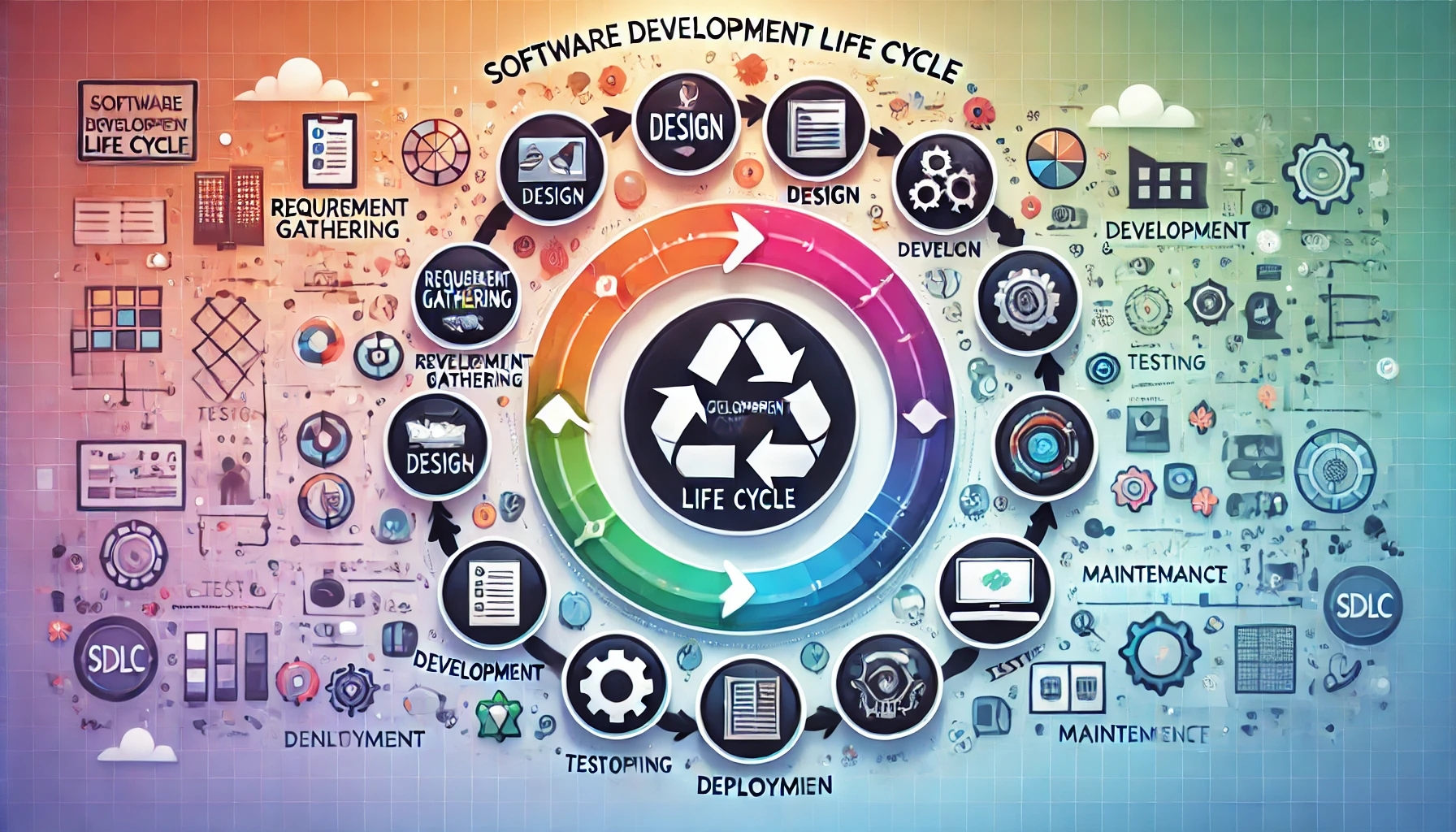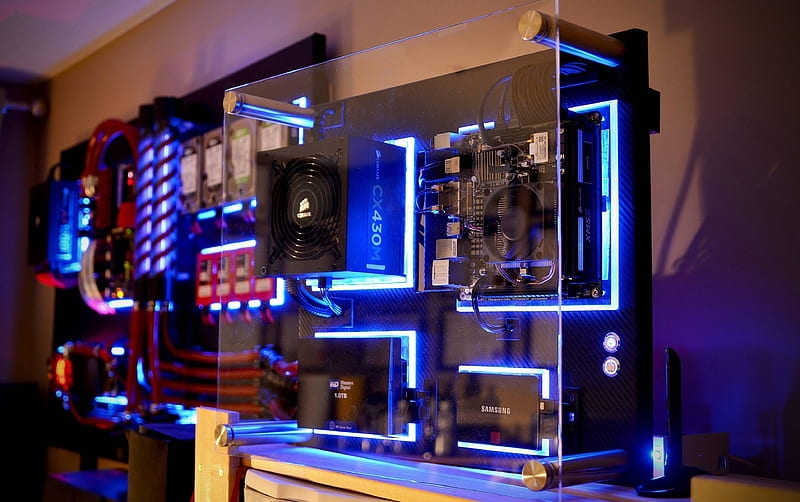Why is a Gaming PC the Ultimate Tool for Both Gaming and Professional Development?

Last Update: 12 Sept 2024
Why is a Gaming PC the Ultimate Tool for Both Gaming and Professional Development?
If you're a software or web developer with a passion for gaming, you've probably faced the dilemma of finding a PC that can handle both your work and your play. On one hand, you need a machine that can compile code quickly, run virtual machines, and handle intensive tasks without slowing down. On the other hand, you want a PC that can run the latest AAA games at high settings, providing a seamless and immersive gaming experience. The good news is that a gaming PC can offer the best of both worlds. Here's why investing in a high-performance gaming rig is not only a treat for your gaming sessions but also a strategic choice for your professional development tasks.
1. Raw Processing Power: A Developer's Best Friend
At the heart of any gaming PC is its CPU, the central processing unit. Gaming PCs are typically equipped with multi-core processors, which are crucial for running modern games. But these same CPUs are just as beneficial for professional tasks, especially in software development.
- Multi-Core Performance: Gaming PCs often feature processors with 6, 8, or even 16 cores. This multi-core architecture allows for efficient multitasking, which is essential for developers who often need to run multiple applications simultaneously. For instance, you might have your Integrated Development Environment (IDE), a local server, a browser with multiple tabs, and a database management tool all running at the same time. A gaming PC's CPU can handle these demands with ease, ensuring that your workflow remains smooth and uninterrupted.
- High Clock Speeds: The clock speed of a CPU, measured in GHz, determines how quickly it can process instructions. Gaming CPUs are designed to run at high clock speeds to handle the complex calculations required in gaming, such as physics simulations and AI processing. For developers, this means faster compilation times, more responsive applications, and overall quicker performance when dealing with resource-intensive tasks like video encoding or large-scale data analysis.

2. The Power of the GPU: Beyond Gaming Graphics
While the graphics processing unit (GPU) in a gaming PC is primarily designed to render stunning visuals in games, its capabilities extend far beyond that, offering significant advantages for developers as well.
- Parallel Processing: Modern GPUs are equipped with thousands of cores, allowing them to handle many tasks simultaneously. This makes them ideal for parallel processing tasks that are common in software development, such as training machine learning models or rendering high-resolution images. If you're working in fields like AI, data science, or any form of graphical development, the power of a gaming GPU can significantly speed up your work.
- Hardware Acceleration: Many development tools and software applications, especially those related to design, animation, and 3D modeling, leverage the GPU for hardware acceleration. This means tasks like rendering graphics, processing videos, and even some aspects of code compilation can be offloaded to the GPU, freeing up the CPU to handle other tasks. As a result, you get faster performance and a smoother workflow.

3. Fast Storage: Speed Up Your Workflow
Storage is another critical component of a gaming PC that offers substantial benefits for developers. In gaming, fast storage reduces load times, making for a smoother gaming experience. For developers, the advantages are just as significant.
- NVMe SSDs: Gaming PCs typically come equipped with NVMe (Non-Volatile Memory Express) SSDs, which are significantly faster than traditional SATA SSDs or hard drives. This speed translates into quicker boot times, faster application launches, and reduced file transfer times. When you're working with large projects or datasets, these speed improvements can add up to substantial time savings over the course of a day.
- Large Storage Capacity: Gaming PCs often include large SSDs or a combination of SSDs and HDDs to provide ample storage for games. This is equally beneficial for developers who need space to store large codebases, virtual machines, or extensive libraries and tools. Having enough storage means you can keep all your development resources at your fingertips without constantly worrying about running out of space.

4. Future-Proofing: Stay Ahead of the Curve
Technology evolves rapidly, and as a developer, you need a machine that can keep up with the latest advancements in both software and hardware. Gaming PCs are designed with this in mind, offering a level of future-proofing that ensures your investment remains valuable for years to come.
- Upgradeable Components: One of the biggest advantages of a gaming PC is its upgradability. Unlike many laptops or pre-built desktop computers, gaming PCs are designed to be easily upgraded. As your needs grow, you can swap out components like RAM, storage, or the GPU to keep your system performing at its best. This flexibility is especially valuable for developers who may need to upgrade their machine to handle more demanding tasks as their projects evolve.
- Cutting-Edge Technology: Gaming PCs often incorporate the latest technology, from PCIe 4.0 motherboards to the latest generation of DDR5 RAM. These technologies not only enhance gaming performance but also provide a robust platform for professional work. By investing in a gaming PC, you're positioning yourself to take advantage of future software advancements that require high-performance hardware.
5. Advanced Cooling Systems: Keep Your Machine Running Smoothly
Gaming PCs are built to handle the heat generated by powerful components running at full throttle for extended periods. This is achieved through advanced cooling solutions that ensure your machine remains cool and stable, even during the most demanding tasks.
- Liquid Cooling Systems: High-end gaming PCs often come with liquid cooling systems, which are more efficient at dissipating heat than traditional air coolers. For developers, this means your PC can handle long coding sessions, complex simulations, or intensive compiling processes without overheating, ensuring consistent performance.
- High-Performance Fans: Even if you opt for a gaming PC with air cooling, the fans are typically designed to provide superior airflow, keeping your components cool. This reduces the risk of thermal throttling, where the CPU or GPU reduces its performance to prevent overheating, which can slow down your work.

6. Enhanced Visuals and Displays: Perfect for Design and Development
If your work involves any form of design, whether it’s web design, UI/UX design, or 3D modeling, the visual capabilities of a gaming PC are invaluable. Gaming PCs are often paired with high-quality monitors that offer superior color accuracy, higher resolutions, and faster refresh rates.
- High-Resolution Displays: Many gaming monitors offer 1440p or 4K resolutions, providing a level of detail that’s crucial for design work. When working on intricate designs or high-resolution graphics, having a clear, crisp display can help you see every detail and make more precise adjustments.
- Wide Color Gamut and HDR: Some gaming monitors support a wide color gamut and High Dynamic Range (HDR), which provide more accurate and vibrant colors. This is particularly useful for designers who need to ensure that their work looks its best across all devices and platforms.
- Multi-Monitor Setups: Gaming PCs typically come with powerful GPUs that support multiple monitors. This allows you to create a multi-monitor setup, which can dramatically increase your productivity. Imagine having your code editor on one screen, your design tools on another, and your documentation or browser open on a third. With a gaming PC, this setup is easily achievable.

7. Connectivity and Peripheral Support: Everything You Need at Your Fingertips
Developers often rely on a variety of peripherals, from external hard drives to drawing tablets and VR headsets. Gaming PCs are designed with extensive connectivity options to accommodate these needs.
- USB Ports Galore: Gaming PCs typically come with multiple USB ports, including USB 3.0 and USB-C ports, providing high-speed connections for all your devices. This is particularly useful for developers who need to connect multiple external drives, input devices, or even development boards.
- High-Speed Networking: Many gaming PCs come with high-speed Ethernet ports and advanced Wi-Fi capabilities. This ensures that you have fast, stable internet connections, whether you're pushing code to a remote server, collaborating with team members, or downloading large files.

Conclusion: A Smart Investment for Work and Play
In conclusion, a gaming PC is more than just a luxury for gamers—it's a powerful tool that can enhance your productivity as a software or web developer. The combination of powerful CPUs, high-performance GPUs, fast storage, advanced cooling systems, and future-proof technology makes a gaming PC an ideal choice for professionals who need a reliable, high-performance machine for both work and play.
By investing in a gaming PC, you're not just buying a machine for entertainment—you're equipping yourself with a versatile, future-proof platform that can handle the demands of modern development. Whether you're compiling large codebases, running complex simulations, designing high-resolution graphics, or simply enjoying a gaming session after a long day of work, a gaming PC is the perfect choice to meet all your needs.
So, if you're on the fence about whether a gaming PC is a justified purchase for your professional life, rest assured that it's a smart, long-term investment that will pay dividends in both your work and your gaming adventures.
Trendingblogs
Get the best of our content straight to your inbox!
Don’t worry, we don’t spam!





